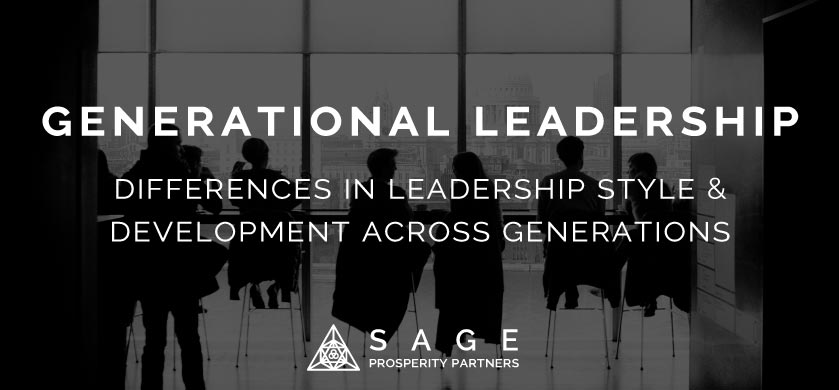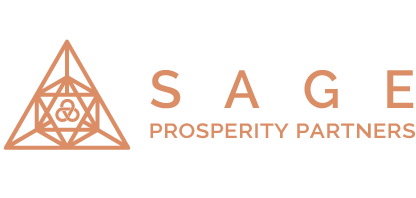

For the past four-and-a-half years, Lisa and I have been engaged in the practice of educating executives of all generations in the Art of Leadership. As we have progressed by conducting more than 100 mastermind groups (made up of over 1500 people), we have been struck by a most revealing conclusion regarding generational leadership differences.
We and our consulting colleagues have largely focused our efforts on taking hierarchy-organized groups and trying to equip all managers with the same leadership outlook, despite their generational alignment. Understand one thing: all generations learn differently and they all respond to education differently. As Baby Boomers, we were taught to value rigor and structure, and at the same time, liberal arts. Gen X were taught to prepare for the big exam that gave them the right to graduate. Millennials were exposed to experimental learning which changed several times before they graduated. And Gen Z wants it all on their phones.
Understand one thing: All generations learn differently, and they all respond to education differently.
Generational leadership differences: How we got here
We have deluded ourselves into thinking that if we can get all executives to accept and execute the Art of Leadership as a Baby Boomer would, everything will be fine. We even build in ways to deal with executives who disagree with that premise by giving advice on how to deal with Millennials or Gen Z, as if their thinking was deviant to the concept of Leadership. No, they want it in bite-sized portions so they can understand it, practice it, and perfect it. But what they also would appreciate is a mentor (not a boss) to give them the feedback that they need.
The fact is, Leadership is not a one-size-fits-all concept. Why? Because over the last 20 years, industry has unwound the Baby Boomer's traditional hierarchy organization (for cost savings purposes), at the same time insisting that the top down approach is best. In fact, what has happened is that - out of a sense of survival - Gen X, Millennial and, most recently, Gen Z have formed working Team-based tribes to keep the boat afloat.
The next generation of leadership is developing themselves
Today's working Team-based tribes still report things up the ladder and receive bureaucratic feedback based on outdated policies, procedures and practices. These responses are largely ignored by the Team tribes as they solve their own problems by experimenting with approaches that they test without the benefit of the same in-depth leadership training that the Baby Boomers received as they ascended through the ranks. In fact, many Baby Boomer executives just assume that Millennials and Gen Z employees were taught the same soft skill Leadership techniques that they were, due to their advanced degrees. They do not understand why their corporate descendents are not as proficient in the Art of Leadership as they are. In fact, the Boomers view them as disruptive because they want things too fast, without "earning it," and they have no respect for the way that we do things.
The fact of the matter is that Gen X, Millennials and Gen Z have already bought into the concept of lifelong learning and figure things out when confronted by a challenge by Googling or YouTubing the answer. Yes, Baby Boomers: your direct reports educate themselves on all the things that you have neglected to expose them to.
Drawbacks to asynchronous development
Now, this asynchronous approach to learning is not the optimum because it lacks interactivity. In other words, these deviants who won't wait their turn go around you to seek knowledge; once they have practiced it a number of times, they get it! So why should they need you? Because you, as a Boomer, have something they can't get online or from each other - your wisdom!! Stop being an autocrat and start being a respected source of Leadership wisdom.
#BabyBoomers: Stop being autocrats and start being respected sources of #Leadership wisdom.
Click to tweet
It is time to stop the madness and approach leadership training from a Generational perspective rather than as a one-size-fits-all solution. We must accept the fact that Boomers need to be seamlessly transitioned from their current roles and, if they wish, still be tethered to the organization as legacy-based consultants. Gen X needs to be schooled in the art of High Performance Leadership (HPL) skills while Millennials need primary Leadership techniques, and Gen Z needs an orientation to how Leadership works within the organization to set their expectations.
We, as training consultants, need to meet these Generations where they are individually, live in their world as we give them technical advice, and lead with the “why” and not just the “how.” Through this approach, we build trust, are seen by each group as a great advisory resource, and over time reshape the company's culture where Team-inclusion reigns and the top-down approach disappears, along with its disruptive atmosphere. When I say live in their worlds, what I mean is: it's time to take our content and begin to re-purpose it to fit each generation's learning style. In other words, place the content in a format that each generation can relate to as well as profit from.
Baby Boomer leadership style
Okay, Boomers: it’s time for you to become the Strategic Sage, the go-to rather than the run-away-from guy. You need to be sought out for your wisdom rather than play the Mr. or Mrs. Big routine. To get there, you will need weekly two-hour instructor-led classes on "How to Understand the Three Gens to follow" - new perspectives addressing gender, ethnicity, expectations, behavior, communication, trust, and culminating with Organizational Transformation.
But your learning does not end with that. The final stop in this cycle of learning is preparing you for your "Second Act" from a seamless succession standpoint, and from a personal perspective on "How to Design an Extraordinary Afterlife." No, not passing away; passing over from your corporate life to your "Second Act." That will be the hardest one to tackle because you have to completely change 40 years of behavior.
A personal example
I did it; I got the transition part right. I did a five-year seamless hand-off to a great millennial. Each day, no matter what, we would meet for an hour and just talk about handling situations. Her questions and insights were invaluable for her growth and she gave me great insight into her management thoughts, behaviors and desires. In fact, the reason why I do Leadership Development today is because I saw just how badly her generation needs our collective Boomer wisdom.
Generation X leadership style
Next: Gen X, the middle child, because they are the smallest generation in terms of sheer numbers; about half the size of all others. Plus, as a group, they shy away from leadership roles and gravitate towards specialty roles. They accept the way things are organizationally because they have their piece of the pie and everyone pretty much leaves them alone.
They are so good at what they do and respected for it that they need to be brought to a whole different level of Leadership Awareness. They need to be armed with High Performance Leadership: full of challenges that culminate with their leading superior performance. This is the group that we must motivate towards Leadership, as they are the Leadership bridge in many cases, due to many companies' slow start towards succession planning. Their curriculum will need the “why,” not the “how,” and must include High-Performance Principles, Assessment, Strategies, Emotional Intelligence and Developing High Performance Teams.
Gen X does not do well in groups; they will need to be individually coached because they are specialists who we need to be repurposed as Leadership generalists. This group is very process-oriented, therefore, coaching is the best and fastest way to bring them up to speed while giving them the recognition they deserve.
Millennial leadership training
Millennials are the most focused-on generation since the Baby Boomers. They will need the most curriculum attention, and this is where we leave the classroom and venture out into the www. Millennials will need a virtual smorgasbord of Leadership concepts including, but not limited to:
- Vision
- Trust
- Conflict
- Engagement
- Emotional Intelligence (we already see all the Baby Boomers nodding their heads)
- Communication
- Persuasion
- Diversity
- Organizational Transformation
All this content will need to be delivered via an email video to this generation in daily bite-sized pieces (eight minutes each), where a nugget of great content is followed up by a go-out-and-try-it assignment. Once per week, all the participants will gather for a "Let me tell you my story" lunch and learn Master Mind follow-up, where each will detail an experience they had using one of the daily content assignments. The focus of this style of training is to put content into action ASAP as it reforms and resets the company's culture from driven by hierarchy to worked on by Teams. Very exciting!!
Generation Z leadership training
Finally, Gen Z: the total technological learner. Their training will really be an orientation to leadership with a heavy emphasis on "why we do things the way we do" and “how can we make it better.” Their bite-sized, daily five-minute phone video presentations will have them interact with one another by group text, with feedback returned by the CEO as the group is engaging. This will be a real test for many companies, but it is the best way to engage and retain our Gen Z population. Personally, we feel that if done right, it will provide the company with many breakthrough moments.
Conclusion
So there you have it: our thoughts on Leadership Development and generational leadership differences after a few years of observation. Now, we just need to go out and do it and report back as it is happening. Stay tuned!!!


